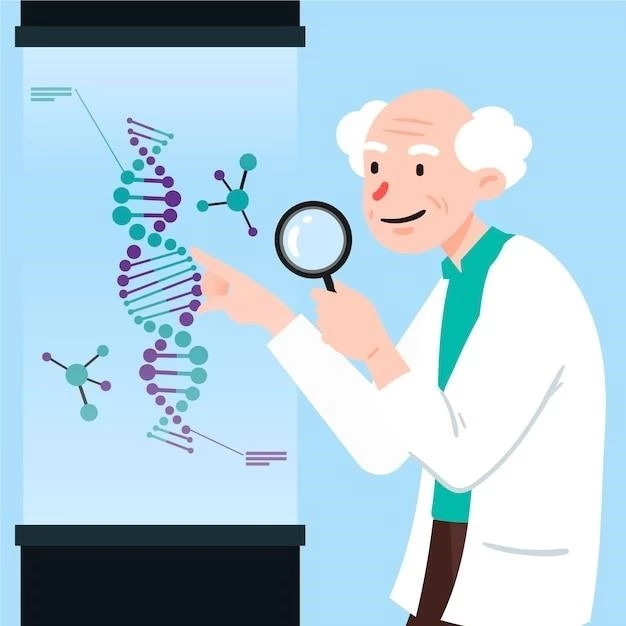Kozlowski–Ouvrier Syndrome
This article provides a comprehensive overview of Kozlowski–Ouvrier Syndrome, a rare genetic disorder characterized by skeletal dysplasia, developmental delay, intellectual disability, joint contractures, short stature, hearing loss, and more. The genetic basis, diagnosis, treatment options, research advancements, prognosis, and quality of life considerations for individuals with this syndrome will be covered.
Overview of Kozlowski–Ouvrier Syndrome
Kozlowski–Ouvrier Syndrome, also known as Kozlowski–Warren–Fisher syndrome, is a rare genetic disorder characterized by a spectrum of symptoms, including skeletal dysplasia, developmental delay, intellectual disability, joint contractures, short stature, and hearing loss. This syndrome was first described by Kozlowski et al. in 1979 and Ouvrier et al. in 1988.
Individuals with Kozlowski–Ouvrier Syndrome often exhibit distinct facial features, such as a prominent forehead, a flat nasal bridge, and a small chin. The skeletal dysplasia associated with this condition can lead to various abnormalities in bone development, including short limbs and abnormal curvature of the spine.
Developmental delay and intellectual disability are common features of Kozlowski–Ouvrier Syndrome, affecting an individual’s cognitive and motor skills. Joint contractures, particularly in the elbows and knees, can cause restricted movement and may require interventions such as physical therapy.
Hearing loss is another characteristic of this syndrome, which can vary in severity and may necessitate the use of hearing aids or other assistive devices. The genetic basis of Kozlowski–Ouvrier Syndrome involves mutations in a specific gene, although new research continues to uncover novel genetic factors contributing to this condition.
Diagnosing Kozlowski–Ouvrier Syndrome typically involves a thorough clinical evaluation, imaging studies to assess skeletal abnormalities, genetic testing to identify mutations, and hearing assessments. Early diagnosis is crucial in implementing appropriate treatment strategies and interventions to optimize the quality of life for individuals with this syndrome.
Genetic Basis of Kozlowski–Ouvrier Syndrome
Kozlowski–Ouvrier Syndrome is primarily caused by mutations in a specific gene that plays a critical role in skeletal development and growth. The exact gene associated with this syndrome is still being researched, and new findings continue to emerge regarding the genetic basis of the disorder.
Most cases of Kozlowski–Ouvrier Syndrome are sporadic, resulting from random mutations that occur during early development. In some instances, the syndrome may be inherited in an autosomal recessive pattern, meaning that an individual must inherit two copies of the mutated gene ⏤ one from each parent — to manifest the condition.
Studies have shown that the gene mutations observed in Kozlowski–Ouvrier Syndrome disrupt normal bone formation, leading to the skeletal dysplasia observed in affected individuals. These genetic alterations can impact various signaling pathways and molecular mechanisms involved in bone growth and development.
Research into the genetic basis of Kozlowski–Ouvrier Syndrome is ongoing, with a focus on identifying additional genes and genetic factors that may contribute to the complexity of the disorder. Understanding the underlying genetic mechanisms is crucial for enhancing diagnostic approaches and developing targeted treatment strategies for individuals with this rare genetic syndrome.
Diagnosis of Kozlowski–Ouvrier Syndrome
Diagnosing Kozlowski–Ouvrier Syndrome requires a comprehensive approach that involves clinical evaluation, imaging studies, genetic testing, and specialized assessments. The first step in diagnosing this rare genetic disorder is conducting a thorough physical examination to assess for characteristic features such as skeletal dysplasia, facial abnormalities, and joint contractures.
Imaging studies, including X-rays and bone scans, can help identify skeletal abnormalities such as short limbs, bowing of long bones, and abnormal spinal curvature. These tests are essential for confirming the presence of skeletal dysplasia, a hallmark feature of Kozlowski–Ouvrier Syndrome.
Genetic testing plays a crucial role in diagnosing Kozlowski–Ouvrier Syndrome by identifying specific gene mutations associated with the disorder. This testing may involve sequencing the relevant gene to detect pathogenic variants that contribute to the syndrome’s development.
Hearing assessments are also an integral part of the diagnostic process, as hearing loss is a common feature of Kozlowski–Ouvrier Syndrome. Audiological tests, including pure-tone audiometry and auditory brainstem response testing, can help determine the extent and nature of hearing impairment in affected individuals.
A multidisciplinary approach involving geneticists, pediatricians, orthopedic specialists, audiologists, and other healthcare professionals is essential for an accurate diagnosis of Kozlowski–Ouvrier Syndrome. Early and precise diagnosis enables the implementation of appropriate treatment strategies and interventions to address the diverse medical needs of individuals with this complex genetic disorder.
Symptoms and Clinical Features
Kozlowski–Ouvrier Syndrome presents with a range of symptoms and clinical features that collectively define the complex nature of this rare genetic disorder. Individuals affected by this syndrome may exhibit skeletal dysplasia, characterized by short limbs, abnormal bone development, and spinal abnormalities such as scoliosis.

Developmental delay and intellectual disability are common manifestations of Kozlowski–Ouvrier Syndrome, impacting cognitive and motor skills development. Individuals may experience delays in reaching developmental milestones and require specialized support to optimize their learning and functional abilities.
Joint contractures, particularly in the elbows and knees, can lead to restricted movement and difficulty with mobility. These contractures may necessitate interventions such as physical therapy, splinting, or surgical procedures to improve joint function and prevent further complications.
Facial features associated with Kozlowski–Ouvrier Syndrome may include a prominent forehead, flat nasal bridge, and a small chin. These characteristic facial abnormalities, along with skeletal dysplasia, contribute to the distinct physical appearance of individuals with this syndrome.
Hearing loss is another significant clinical feature of Kozlowski–Ouvrier Syndrome, with varying degrees of severity observed among affected individuals. Regular hearing assessments and appropriate interventions, such as hearing aids, can help manage hearing impairment and improve overall quality of life.
Given the multisystem nature of Kozlowski–Ouvrier Syndrome, a comprehensive understanding of its symptoms and clinical features is crucial for accurate diagnosis and personalized treatment planning to address the diverse needs of individuals affected by this rare genetic disorder.
Treatment Options for Kozlowski–Ouvrier Syndrome
Treating Kozlowski–Ouvrier Syndrome requires a multidisciplinary approach aimed at addressing the diverse medical needs of affected individuals. Management strategies focus on symptom-specific interventions, developmental support, and improving overall quality of life.
Physical therapy plays a crucial role in managing joint contractures and skeletal abnormalities associated with Kozlowski–Ouvrier Syndrome. Therapeutic exercises, stretching routines, and orthotic devices can help improve mobility, prevent contractures, and enhance overall musculoskeletal function.
Individuals with developmental delays and intellectual disabilities may benefit from early intervention services, educational support, and specialized therapies to promote cognitive, social, and emotional development. Individualized education plans and behavioral interventions can help optimize learning outcomes and independence.
Management of hearing loss in individuals with Kozlowski–Ouvrier Syndrome involves regular audiological assessments and the provision of appropriate assistive devices, such as hearing aids or cochlear implants. Speech therapy may also be recommended to address communication challenges associated with hearing impairment.
Surgical interventions may be necessary to address severe skeletal abnormalities, correct spinal curvature, or improve joint function in individuals with Kozlowski–Ouvrier Syndrome. Orthopedic consultations and surgical procedures can help optimize physical function and alleviate discomfort associated with musculoskeletal issues.
Regular follow-up care, monitoring of symptoms, and adaptive measures tailored to the individual’s needs are essential components of ongoing management for Kozlowski–Ouvrier Syndrome. Genetic counseling for affected individuals and their families can provide valuable information about inheritance patterns, recurrence risks, and available support services.
Research and Novel Therapies
Ongoing research into Kozlowski–Ouvrier Syndrome aims to enhance our understanding of the underlying genetic mechanisms, explore potential therapeutic targets, and develop novel treatment approaches to improve outcomes for affected individuals. Advancements in genetic sequencing technologies have facilitated the identification of novel genes and mutations associated with the syndrome, expanding our knowledge of its genetic basis.
Gene therapy and gene editing techniques represent emerging areas of research that hold promise for the development of targeted therapies for genetic disorders like Kozlowski–Ouvrier Syndrome. By modifying specific genetic sequences, researchers seek to correct mutations responsible for the syndrome and restore normal cellular function.
Pharmacological interventions targeting molecular pathways involved in skeletal development and growth are being investigated as potential therapeutic strategies for managing skeletal dysplasia in individuals with Kozlowski–Ouvrier Syndrome. These novel treatments aim to address the root causes of bone abnormalities and enhance bone health.
Regenerative medicine approaches, including stem cell therapy and tissue engineering, hold potential for repairing damaged tissues and promoting musculoskeletal regeneration in individuals with Kozlowski–Ouvrier Syndrome. These innovative therapies offer a regenerative solution to address structural abnormalities and functional impairments associated with the syndrome.
Clinical trials evaluating novel therapies for Kozlowski–Ouvrier Syndrome are essential for validating the safety and efficacy of experimental treatments and translating research findings into clinical practice. Collaborative efforts among researchers, healthcare professionals, and patient advocacy groups play a critical role in advancing research and innovation in the field of rare genetic disorders.
Prognosis and Quality of Life
The prognosis for individuals with Kozlowski–Ouvrier Syndrome varies depending on the severity of symptoms, the presence of complications, and the effectiveness of treatment interventions. While the syndrome is associated with significant medical challenges, early diagnosis, multidisciplinary care, and personalized treatment plans can help improve outcomes and quality of life.
Individuals with Kozlowski–Ouvrier Syndrome may face physical limitations due to skeletal dysplasia, joint contractures, and musculoskeletal issues. However, proactive management of these challenges through physical therapy, orthopedic interventions, and assistive devices can enhance mobility and functional abilities, improving overall quality of life.
Cognitive and developmental delays may present additional hurdles for individuals with Kozlowski–Ouvrier Syndrome, impacting educational progress and social interactions. Early intervention services, educational support, and behavioral therapies play a crucial role in addressing these needs and maximizing potential outcomes.
The presence of hearing loss in individuals with Kozlowski–Ouvrier Syndrome requires ongoing audiological monitoring and access to appropriate hearing aids or assistive technologies. Effective management of hearing impairment can enhance communication skills, social integration, and overall well-being.
Genetic counseling and support services are essential components of care for individuals with Kozlowski–Ouvrier Syndrome and their families, providing information, guidance, and emotional support. By fostering awareness, empowerment, and advocacy, these resources contribute to improved coping strategies and long-term adjustment to the challenges associated with the syndrome.
Despite the complexities of Kozlowski–Ouvrier Syndrome, advances in medical research, innovative therapies, and comprehensive care approaches offer hope for enhanced quality of life and improved outcomes for affected individuals. Through continuing research, collaboration, and individualized support, the prognosis and quality of life for individuals with this rare genetic disorder can be positively influenced.
